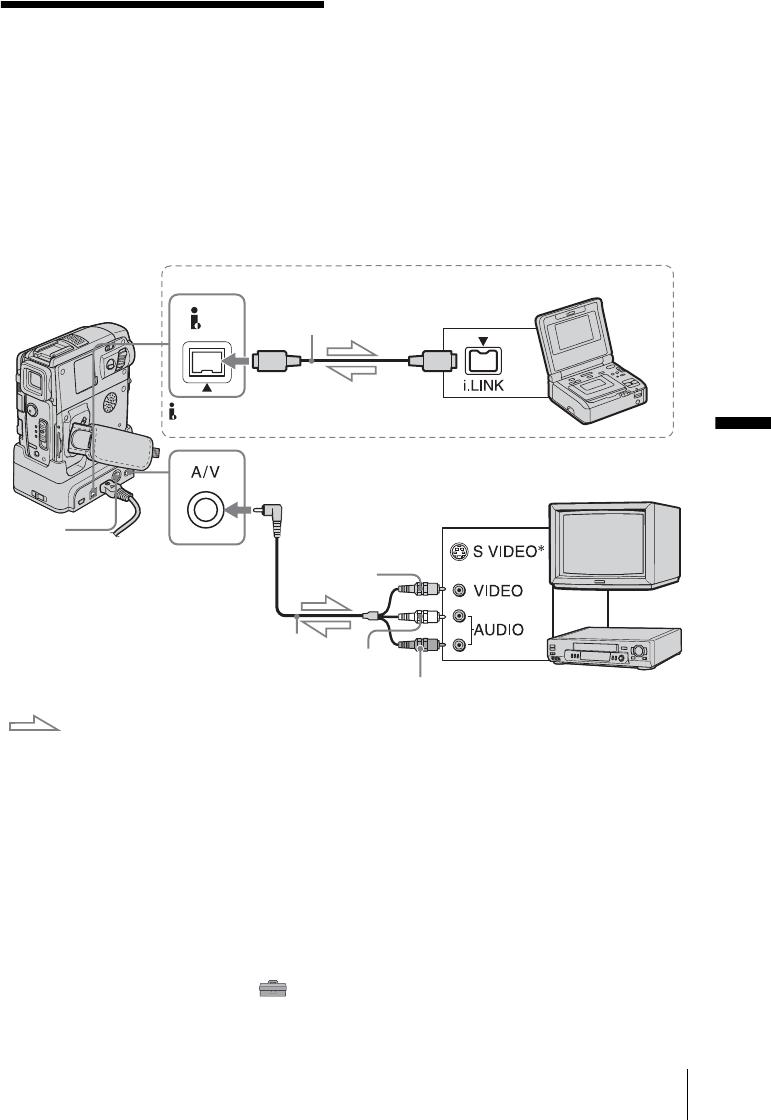
Dubbing/Editing
Dubbing/Editing
93
Dubbing/Editing
Connecting to a VCR
or TV
You can record the picture from a VCR or TV
to a tape or a “Memory Stick Duo” inserted
into your camcorder (p. 95). You can also
create a copy of the picture recorded on your
camcorder on other recording device (p. 94).
Connect your camcorder via the Handycam
Station or the A/V jack of your camcorder to
a TV or VCR using the supplied A/V
connecting cable.
Connect your camcorder to the wall outlet
using the supplied AC Adaptor during the
operation.
* By using an S video cable (optional), higher quality
DV format pictures can be produced.
When there is an S video jack on the device to be
connected, connecting the S video cable (optional)
to the S video jacks on both your camcorder and the
device instead of using the yellow plug is
recommended. The audio will not be output when
you connect with the S video plug alone.
b Notes
• Use the A/V connecting cable (supplied) to connect
your camcorder to other devices. Before connecting,
make sure the [DISPLAY] setting in the
(STANDARD SET) menu is set to [LCD PANEL]
(the default setting) (p. 88).
• Connect the A/V connecting cable to the output jack
of a device you are dubbing a picture from, or to the
input jack of another device for dubbing a picture
from your camcorder.
• When you are connecting your camcorder to a
monaural device, connect the yellow plug of the
A/V connecting cable to the video jack, and the red
(right channel) or the white (left channel) plug to the
audio jack on the VCR or the TV.
• Do not connect A/V connecting cables to both your
camcorder and the Handycam Station. The image
might be distorted.
DV
A/V connecting cable
(supplied)
i.LINK cable (optional)
DV Interface
Signal flow
i.LINK jack
Connecting with an i.LINK cable
VCRs or TVs
A/V jack
Yellow
Red
White
S VIDEO
jack
,continued
